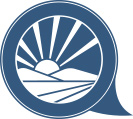
Avoiding Financial Fraud: Not just for the elderly
By Claudine Schweber, co-chair, Emergency Preparedness Committee
Don’t wait until April to pay attention to your financial situation. The people trying to separate you from your money are ready to act now—by phone, text, or email (online). While many financial preparedness advice columns and websites focus on the elderly, millennials have joined the “seriously at risk” group for being scammed. Indeed, “millennials lose more money to financial scams than seniors” according to a Federal Trade Commission Report issued in March 2018 (See Zach Friedman’s March 9, 2018 article online at Forbes.com.).
Are you prepared to avoid the traps? Last March I wrote about the need for basic Financial Preparedness. A year later, being prepared also means being aware of and prepared to avoid scams and other thefts.
Step 1: Awareness
- Identity theft: This may involve bills for items you didn’t buy, debt collection for accounts you didn’t open, use of your social security number, medical theft of health insurance information, and stealing your ID for social media purposes (See www.consumer.ftc.gov/topics/identity-theft). In a 2018 report, Maryland was one of five states with the highest rate of identity theft.
- Scams and fraud: This is the category where 40 percent of millennial’s and 18 percent of those 70 and older reported financial losses in 2018. Imposter scams include someone pretending to represent the government. For example, there’s the tax collection scam where callers have claimed to be from the IRS demanding that you pay towed taxes immediately with a prepaid debit card or wire transfer. You may even be threatened with arrest if you don’t pay. This has also been done via email and text. Another scam is verification, an email or text message requiring that you verify your personal information. The message often includes a hyperlink phrase “click here” or a button to a fraudulent form or website. The IRS will always contact you by mail first.
Call the IRS immediately 1-800-366-4484; for email contact, report to phishing@irs.gov.
There are also charity scams, tickets scams, housing scams, lottery and sweepstakes scams, banking scams and many more. See www.usa.gov/common-scams-frauds for more schemes and what to do if you encounter them.
Step 2: Action
Do you know exactly what your assets and expenses are? Is there a list with specifics? If you are ill, is there a back-up person/s? Do they know how to contact key persons? Create a financial checklist that identifies the income, asset and expenses and medical information, etc. Give one copy to a trusted person/s and save one for yourself (paper or electronic).
Documentation
For each item, list its name, the supporting documents, and reminders, such as renewals, contact persons and account numbers.
- Income, assets, financial accounts, such as checking, savings, retirement, investments
- Checking accounts, savings accounts with name, numbers
- Bank/Credit union: name, account number
- Retirement accounts: IRA, 401K, other
- Gov’t benefits: social security, Medicare/Medicaid, veteran’s benefits, etc.
- Investment: stocks, bonds, mutual funds, other
- Insurance company
- Alimony or child support income
- Expenses (housing, medical (+ insurance info), varied monthly bills and other expenses)
Education
- Prepare students in high school (or earlier) to be financially responsible and aware. For example, see “Personal Finance in High School—When I’m 65” (4:30 min) at vimeo.com/227765856.
- Teach young children some financial basics, such as spending some, but not all of http://imeo.com/227765856 their money, giving some away and keeping track of their money.
Thank you Dr. Kathleen Sindell, certified financial planner (www.fpedec.org); Kathleen Quinn EPC Committee and JumpStart Clearing House (www.jumpstart.org) for your assistance with this article.
Contact us at tpepc@takomaparkmd.gov or 301-891-7126. Listen to Bea(trice) Prepared the first Sunday of the month on WOWD/ Talk of Takoma.
This article appeared in the March 2019 edition of the Takoma Park Newsletter. The Takoma Park Newsletter is available for download here.
